Visa policy of Hong Kong
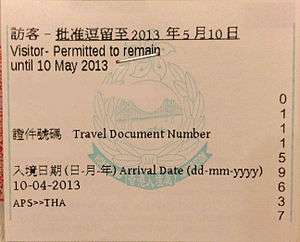
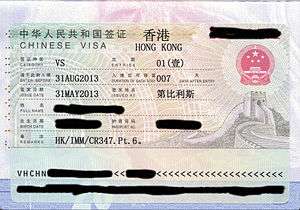
The Government of Hong Kong allows nationals of about 170 countries and territories to travel to Hong Kong for tourism or certain business-related activities[1] for periods ranging from 7 to 180 days without having to obtain a visa.[2] Unless having the right to land or right of abode in Hong Kong, nationals of all countries and territories require visas to undertake other activities, such as study, employment, or operation of a business. Under the one country, two systems policy, Hong Kong maintains its immigration and visa policy independently from the rest of China. Consequently, entering Hong Kong from mainland China or Macao requires passing through immigration checkpoints of mainland China or Macao. Whilst Macao residents have visa-free access for short visits to Hong Kong, Mainland residents must obtain a Two-way Permit with the appropriate exit endorsement from the Chinese Ministry of Public Security before visiting Hong Kong.
Due to the historical background of Hong Kong, immigration status in Hong Kong is determined by a combination of both nationality and residence status. Therefore, even a Chinese national with the right of abode in Hong Kong has a slightly different status to a foreign national with the right of abode in Hong Kong as well (since the former can never lose ROA status while the latter can lose it if he does not enter Hong Kong for a period of 36 months).[3] At the same time, a foreign national with the right of abode in Hong Kong has a preferential immigration status to a Chinese national without the right of abode in Hong Kong, as the former can remain in Hong Kong indefinitely, while the latter has to have his immigration status reassessed whenever his visa/permit expires.
All visitors must hold a passport valid for more than 1 month.
Unconditional stay
Persons with the "right of abode" or the "right to land" may enter Hong Kong without holding any visa and without having any condition of stay imposed upon them, and may not be subject to a removal order. In addition, no deportation order may be imposed on a person with the right of abode.[4][5] Possession of one of the following documents is sufficient to demonstrate those rights:[6]
- Hong Kong Permanent Identity Card
- Hong Kong Special Administrative Region Passport
- British National (Overseas) passport[7]
- Hong Kong Certificate of Identity (all of which have expired by 30 June 2007)
- Hong Kong Re-entry Permit (for entry from China and Macao only)
- Hong Kong Seaman's Identity Book
- Hong Kong Document of Identity for Visa Purposes, provided that the document is valid or the holder's limit of stay in Hong Kong has not expired
- Any travel document bearing an endorsement stating either Holder's eligibility for Hong Kong permanent identity card verified or The holder of this travel document has the right to land in Hong Kong. (Section 2AAA, Immigration Ordinance (cap. 115, Laws of Hong Kong))
Visitor visa exemptions
Nationals of the following countries can enter Hong Kong visa-free.[2][6] They can do so as tourists or they can undertake a limited range of business-related activities, namely "concluding contracts or submitting tenders, examining or supervising the installation/packaging of goods or equipment, participating in exhibitions or trade fairs (except selling goods or supplying services direct to the general public, or constructing exhibition booths), settling compensation or other civil proceedings, participating in product orientation, and attending short-term seminars or other business meetings". They are prohibited from taking up employment or study in the territory, or from "establishing or joining in any business".[1] The last provision means that non-residents may not commence operating a business while in Hong Kong, and thus will be refused permission for business registration by the Inland Revenue Department unless it can be proven that the business began operation while they were outside of Hong Kong.[8] However, the Companies Registry permits non-residents to incorporate limited liability companies and to be appointed as corporate directors (though not as corporate secretaries).[9]
Hong Kong Immigration Department has placed for holders of certain types of travel documents, even when the holder's nationality itself provides visa-free entry.
Visa policy map

180 days
 United Kingdom (British citizens only)
United Kingdom (British citizens only)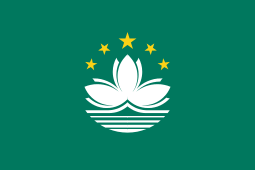 Macau (for holders of Macau Permanent Resident Identity Cards, regardless of nationality)[10]
Macau (for holders of Macau Permanent Resident Identity Cards, regardless of nationality)[10]
90 days
 EU/EFTA citizens (except British citizens)
EU/EFTA citizens (except British citizens) Andorra
Andorra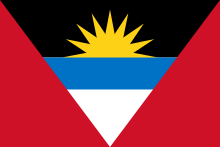 Antigua and Barbuda
Antigua and Barbuda Argentina
Argentina Australia
Australia Bahamas
Bahamas Barbados
Barbados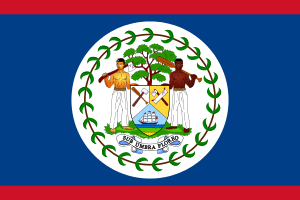 Belize
Belize Botswana
Botswana Brazil
Brazil Brunei
Brunei Canada
Canada Chile
Chile Colombia
Colombia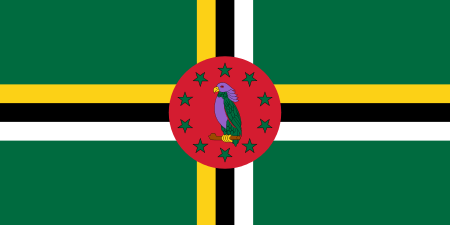 Dominica
Dominica Ecuador
Ecuador Egypt
Egypt Fiji
Fiji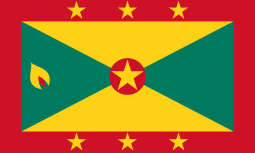 Grenada
Grenada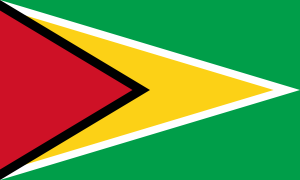 Guyana
Guyana Israel
Israel Jamaica
Jamaica Japan
Japan Kenya
Kenya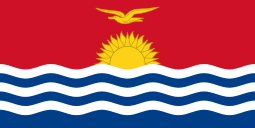 Kiribati
Kiribati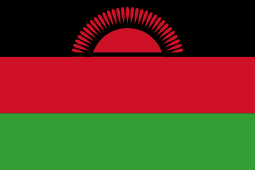 Malawi
Malawi Malaysia
Malaysia Maldives
Maldives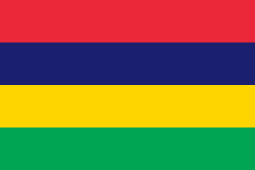 Mauritius
Mauritius Mexico
Mexico Monaco
Monaco Namibia
Namibia Nauru
Nauru New Zealand
New Zealand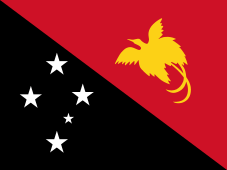 Papua New Guinea
Papua New Guinea San Marino
San Marino Seychelles
Seychelles Singapore
Singapore South Korea
South Korea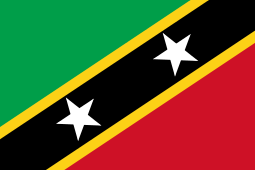 Saint Kitts and Nevis
Saint Kitts and Nevis Saint Lucia
Saint Lucia Saint Vincent and the Grenadines
Saint Vincent and the Grenadines Swaziland
Swaziland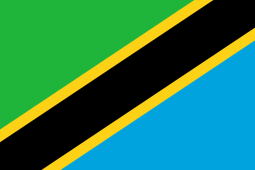 Tanzania
Tanzania Tonga
Tonga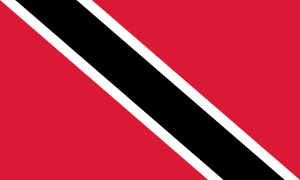 Trinidad and Tobago
Trinidad and Tobago Turkey
Turkey Tuvalu
Tuvalu Uruguay
Uruguay United Kingdom (all other types of British nationality)
United Kingdom (all other types of British nationality) United States
United States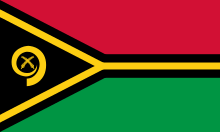 Vanuatu
Vanuatu Venezuela
Venezuela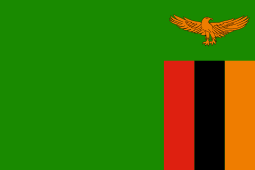 Zambia
Zambia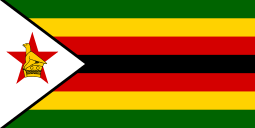 Zimbabwe
Zimbabwe
30 days
14 days
 Albania
Albania Algeria
Algeria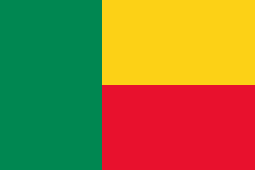 Benin
Benin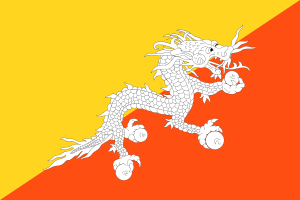 Bhutan
Bhutan Bosnia and Herzegovina
Bosnia and Herzegovina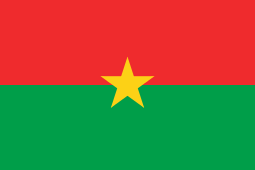 Burkina Faso
Burkina Faso Chad
Chad Comoros
Comoros Djibouti
Djibouti Equatorial Guinea
Equatorial Guinea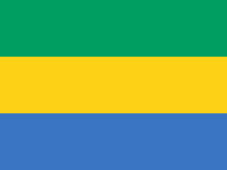 Gabon
Gabon Guinea
Guinea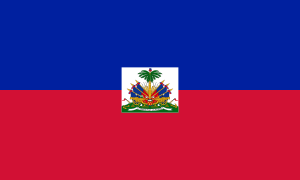 Haiti
Haiti India1
India1 Kazakhstan
Kazakhstan Lesotho
Lesotho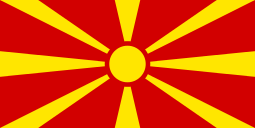 Macedonia
Macedonia Madagascar
Madagascar Mali
Mali Marshall Islands
Marshall Islands Mauritania
Mauritania Micronesia
Micronesia Mongolia
Mongolia Montenegro
Montenegro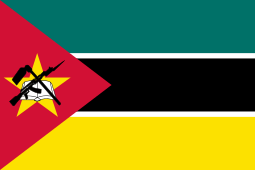 Mozambique
Mozambique Niger
Niger Palau
Palau Philippines
Philippines Russia
Russia Sao Tome and Principe
Sao Tome and Principe Serbia
Serbia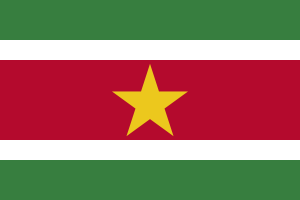 Suriname
Suriname Ukraine
Ukraine Vatican City
Vatican City
1 - Indian nationals are required to obtain pre-arrival registration online prior to visit Hong Kong from early 2017.[11]
7 days
Visitor visa required for persons holding certain kinds of travel documents
The above visa waivers apply only to citizens of the countries in question travelling on standard national passports. The Hong Kong Immigration Department specifically lists the following kinds of travel documents as not entitling their holders to enjoy visa-free entry (visa-free transit is still permitted), notwithstanding that they are issued by countries whose citizens normally enjoy visa-free access:[6]
 Albania (for holders of non-biometric passports)
Albania (for holders of non-biometric passports)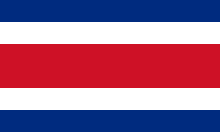 Costa Rica (for holders of Costa Rican provisional passports and "Documento de Identidad y Viaje")
Costa Rica (for holders of Costa Rican provisional passports and "Documento de Identidad y Viaje") Peru (for holders of special Peruvian passports)
Peru (for holders of special Peruvian passports) Serbia (for holders of Serbian non-biometric passports and Serbian passports issued by the Serbian Coordination Directorate in Belgrade)
Serbia (for holders of Serbian non-biometric passports and Serbian passports issued by the Serbian Coordination Directorate in Belgrade) Tonga (for holders of Tongan National and Tongan Protected Person passports)
Tonga (for holders of Tongan National and Tongan Protected Person passports) Tuvalu (if nationality is stated is I-Tuvalu)
Tuvalu (if nationality is stated is I-Tuvalu) Uruguay (for holders of passports issued under Decree 289/90)
Uruguay (for holders of passports issued under Decree 289/90) Vatican City (for holders of Vatican service passports)
Vatican City (for holders of Vatican service passports)
Visitor visa exemptions for diplomatic or official passports only
Holders of diplomatic or official passports issued by the following countries can enter Hong Kong without a visa for 14 days:[6]
Visa required nationals
Visa required
Nationals of the following countries are required to possess a visa for any type of entry into Hong Kong (including as tourists), but are not required to have a visa to transit airside if they remain within the airport transit area:[6]
1 - except for holders of diplomatic or official passports.
Transit visa required
Stateless travel document holders and nationals of the following countries are required to possess a visa for any type of entry into Hong Kong (including as tourists) and for transit airside (even if they remain within the airport transit area):[6]
1 - except for holders of diplomatic or official passports.
![]() Pakistan: Holders of normal passports are required to possess a visa for any type of entry into Hong Kong and for transit airside, with one exception. Pakistani nationals holding ordinary passports are not required to have a visa for airside transit if they remain within the airport transit area, their connecting flight departs within 12 hours and they hold a valid visa or residence permit issued by Australia, Canada, Japan, New Zealand, a Schengen Area member state, South Korea, the UK or the USA, or they have a used, single-entry visa issued by these countries and are arriving on an immediate flight originating from these countries. Those who meet the criteria above are escorted by airport staff to the departure gate in order to ensure that they enter and remain in the airport transit area.[2][13]
Pakistan: Holders of normal passports are required to possess a visa for any type of entry into Hong Kong and for transit airside, with one exception. Pakistani nationals holding ordinary passports are not required to have a visa for airside transit if they remain within the airport transit area, their connecting flight departs within 12 hours and they hold a valid visa or residence permit issued by Australia, Canada, Japan, New Zealand, a Schengen Area member state, South Korea, the UK or the USA, or they have a used, single-entry visa issued by these countries and are arriving on an immediate flight originating from these countries. Those who meet the criteria above are escorted by airport staff to the departure gate in order to ensure that they enter and remain in the airport transit area.[2][13]
Mainland China, Macau and Taiwan
Special rules are in force for nationals of China and Taiwan who do not reside in Hong Kong.
Overview
| Nationality | Residency | Travel document | Duration of stay |
|---|---|---|---|
| Exit-Entry Permit for Travelling to and from Hong Kong and Macau (Two-way Permit)[14] |
Varies, normally 7 days | ||
| Chinese passport | 7 days (for transit to a third country only), varies for HKSAR Entry Permit holders | ||
| Macau Permanent Resident Identity Card | 180 days | ||
| Visit Permit for Residents of Macao to HKSAR | 180 days (for permanent residents) 30 days (for non-permanent residents) | ||
| Macao Special Administrative Region passport Macao Special Administrative Region Travel Permit |
7 days (for transit to a third country only) | ||
| |
Mainland Travel Permit for Taiwan Residents (Taiwan Compatriot Permit)[15] | 30 days | |
| Taiwan passport | 30 days (with pre-arrival registration) | ||
| None (Nationals without household registration) | Chinese Travel Document | Varies (HKSAR Entry Permit required) |
Mainland China
Chinese nationals with hukou in Mainland China are required to obtain an entry permit from the Public Security Bureau for any type of visit to Hong Kong (Two-way Permit required for short visits and long visits, or One-way Permit for settlement), as well as an entry endorsement (similar to a visa) for the purpose of travel. The duration of stay is usually 7 days per trip.[16]
Holders of Chinese passports are are granted a stay of 7 days providing they are transiting to a third country.[16]
Chinese nationals residing in a third country may apply for the HKSAR Entry Permit, affixed on their Chinese passports, from Chinese diplomatic missions. The duration of stay varies, but is usually 14 days or 30 days for short-term visitors.[17]
Macau
Chinese nationals with the right of abode in Macao can enter Hong Kong visa-free for a maximum period of 180 days solely with their Macao permanent identity card. Non-permanent residents of Macao can enter for up to 30 days if they hold a Visit Permit for Residents of Macao SAR to Hong Kong SAR.[10]
Holders of MSAR passports or MSAR Travel Permits are granted a stay of 7 days providing they are transiting to a third country.[10]
Republic of China (Taiwan)
Since 27 April 2009, ROC nationals with right of abode in Taiwan ("right of adobe" is defined as the eligibility of obtaining a Taiwanese National ID Card) holding a Mainland Travel Permit for Taiwan Residents may enter Hong Kong for up to 30 days without obtaining an entry permit in advance.[18]
Otherwise, a valid entry permit must be applied in advance. Previously only airlines and appointed travel agents are authorised to this application while a fee of HKD50 applies. Since 1 September 2012, ROC nationals with ROA in Taiwan may complete the application for Pre-arrival Registration (PAR) online, free of charge, if they fulfill the following criteria:[19]
- were born in Taiwan or were born outside Taiwan but have been admitted to Hong Kong as a Taiwan resident before; and,
- are not in possession of any travel document issued by other countries or regions (except Mainland Travel Permit for Taiwan Residents, and Entry Permit issued by the Immigration Department of Hong Kong). Those who do are not allowed to use their Taiwan passports for entry and instead will have to visit Hong Kong on the strength of their other passports.[20]
After the applicant has successfully registered for PAR, he or she will have to print out the "Notification Slip for Pre-arrival Registration for Taiwan Residents" and carry it when boarding the flight to Hong Kong. The applicant's Taiwan passport is then inspected, along with the notification slip, by an immigration officer. Each PAR is valid for two months from the day of registration and good for two trips to Hong Kong. The duration of each stay is 30 days.[21]
ROC nationals without right of abode in Taiwan (commonly known as nationals without household registration) are not eligible for entry permits issued by the HKSAR government, nor are they allowed to enter with their ROC passport. Instead, they are required to obtain a passport-like Chinese Travel Document and a HKSAR Entry Permit issued by the Chinese diplomatic missions overseas.[22]
ROC nationals who are in transit to a third country are exempt from obtaining an entry permit provided that they do not leave the airport transit area, regardless of whether they have right of adobe in Taiwan.
APEC Business Travel Card
Holders of passports issued by the following countries who possess an APEC Business Travel Card (ABTC) containing the code "HKG" on the back of the card can enter visa-free for business trips for up to 60 days.[2]
ABTCs are issued to nationals of:[23]
Types of non-visitor visas
Persons without the right of abode or right to land in Hong Kong, regardless of their nationality, require visas if they wish to take up residence in the territory. Persons granted these visas become "non-permanent residents". Immigration Department policy places restrictions on the ability of nationals of Afghanistan, Cambodia, Cuba, Laos, Nepal, North Korea, and Vietnam to apply for most kinds of visas.
Employment, investment, and study visas
Hong Kong has a number of visas issued for the purpose of allowing the holder to take up employment or employment-related training:
- Employment as Professionals (EAP): subdivided into the Immigration Arrangement for Non-local Graduates (IANG, for non-local students who have received a degree in a Hong Kong tertiary institution), the General Employment Policy (GEP, for non-Chinese nationals as well as Chinese nationals who have resided outside mainland China for more than one year), and the Admission Scheme for Mainland Talents and Professionals (ASMTP, for Chinese nationals with household registration in mainland China). GEP and ASMTP entrants require permission from the Immigration Department to change employers; IANG entrants do not.[24]
- Training: for periods of up to 12 months. Applications from Chinese nationals with household registration in mainland China are generally not entertained, unless the sponsoring company is multinational and well-established in Hong Kong.[25]
- Working Holiday Scheme (WHS), allowing persons between the ages of 18 and 30 to come to Hong Kong for up to 12 months. There is an annual quota of visas, per nationality: Australia (5,000), Austria (100), Canada (300), France (500), Germany (300), Ireland (200), Japan (875), South Korea (1,000), New Zealand (400), and the United Kingdom (1,000); other nationalities are not eligible. Participants are required to adhere to the specific terms imposed on them based on their nationality.[26]
- Employment as imported workers, also known as Supplementary Labour Scheme (SLS): for work at the "technician level or below". Change of employment not permitted. Employer must pay a HK$400/month levy for up to 24 months.[27]
- Employment as domestic helpers: see foreign domestic helpers in Hong Kong.[28]
- Descendants of Hong Kong residents who immigrated overseas, also known as Admission Scheme for the Second Generation of Chinese Hong Kong Permanent Residents (ASSG): for children of Hong Kong permanent residents of Chinese descent. Applicants must be born "overseas" (i.e., in a country other than mainland China, Hong Kong, Macau or Taiwan), are between 18 and 40 years old at the time of application, and have acceptable education backgrounds as well as language skills. Admitted persons do not have any restrictions of stay other than time limitations, and are allowed to take any jobs or start businesses.
The immigration department also grants student visas for persons wishing to study in registered private (non-public, non-aided) primary and secondary schools, and for various types of study at the degree level (short courses, exchange programmes, and certificate or degree courses). Taiwanese and Chinese residents of mainland China and Macau (only for those who moved from mainland China and settled later than 14 January 1979) are only granted visas to study in tertiary-level courses, short-term studies or exchange programmes. Since the 2008/09 academic year, student visa holders in degree courses of more than a year's duration at tertiary institutions may take up short-term internships; other student visa holders are prohibited from taking up any employment at all.[29]
Other types of visas include the Capital Investment Entrant Scheme (CIES) visa (suspended since 15 January 2015), the Quality Migrant Admission Scheme (QMAS) visa, and the investment visa.[30]
Nationals of Afghanistan, Cuba and North Korea are not eligible for any of the visas listed above; nationals of Cambodia, Laos, Nepal and Vietnam are only eligible for CIES.[24][27][29][31][32]
Dependent visas
Persons on unconditional stay, as well as those granted visas for study, training, employment as professionals, investment, or under CIES or QMAS, may sponsor their spouse and dependent children under the age of 18 for entry into Hong Kong. Persons on unconditional stay may additionally sponsor elderly dependent parents who are over the age of 60. However, persons on unconditional stay cannot sponsor Chinese nationals with household registration in mainland China or Macau residents who immigrated to Macau through "channels other than the One-way Permit scheme" as dependents with few exceptions. Additionally, nationals of Afghanistan and North Korea are not eligible for dependent visas.[33] Dependent visa holders whose sponsor (parent or spouse, as the case may be) holds a study visa require prior permission from the Immigration Department to take up employment; other dependent visa holders may work or switch jobs without prior approval.[34]
Unlike Hong Kong residents in opposite-sex marriages, Hong Kong residents in same-sex marriages with non-Hong Kong residents cannot sponsor their partners for dependent visas. However, according to a July 2011 report by the South China Morning Post, the Hong Kong Immigration Department has an unpublicised policy of granting extended visitors' visas to non-Hong Kong residents in same-sex marriages with Hong Kong residents. This allows them to stay in the city for de facto family reunification, though they cannot take up employment, will not receive a Hong Kong Identity Card, and while holding a visitor's visa will not be regarded as "ordinarily resident" in Hong Kong for purposes of permanent residency applications. However, they may renew their visas without departing from Hong Kong.[35]
Visitor statistics
Most visitors arriving to Hong Kong were from the following countries of nationality or territories of residence:[36]
| Nationality or residency | Total | |
|---|---|---|
| 2015 | 2014 | |
| | 45,842,360 | 47,247,675 |
| | 2,015,797 | 2,031,883 |
| | 1,243,293 | 1,251,047 |
| | 1,181,024 | 1,130,566 |
| | 1,049,272 | 1,078,766 |
| | 704,082 | 634,744 |
| | 675,411 | 737,911 |
| | 574,270 | 603,841 |
| | 544,688 | 589,886 |
| | 531,770 | 516,084 |
| | 529,505 | 520,855 |
| | 529,410 | 485,121 |
| | 413,568 | 492,004 |
| | 358,448 | 354,408 |
| | 209,825 | 217,065 |
| | 213,802 | 218,530 |
| | 151,469 | 202,141 |
| | 91,596 | 92,795 |
| | 58,969 | 55,013 |
See also
- Exit & Entry Permit (Republic of China)
- Visa requirements for Chinese citizens of Hong Kong
- Visa policy of Macau
- Visa policy of China
- Immigration Ordinance
References
- 1 2 Hong Kong Immigration Department: Visit / Transit
- 1 2 3 4 "Visa Information – Hong Kong". Timatic. IATA. Retrieved 15 November 2016.
- ↑ Right of Abode
- ↑ Immigration Ordinance, Section 2a
- ↑ Immigration Ordinance, Section 2aaa
- 1 2 3 4 5 6 Hong Kong Immigration Department: Visit Visa / Entry Permit Requirements for the Hong Kong Special Administrative Region
- ↑ The United Kingdom, which issues BN(O) passports, no longer has authority to grant the right of abode in Hong Kong, which since 1997 is a territory of the People's Republic of China. However, in practice BN(O) is a status that was only ever granted to persons "hav[ing] a connection" to British Hong Kong as defined in the Hong Kong (British Nationality) Order 1986, and as such all holders of BN(O) passports are persons who enjoyed the right to land or right of abode in Hong Kong before 1997, and under the Immigration Ordinance continue to enjoy one of those rights.
- ↑ "Business" Required to be Registered and Application for Business Registration, Inland Revenue Department, retrieved 2 August 2011
- ↑ Frequently Asked Questions: Incorporation of a Local Limited Company, Companies Registry, retrieved 2 August 2011
- 1 2 3 Visit/Transit Arrangements to Hong Kong for Macao Residents
- ↑ Indian nationals to face tighter rules on visiting Hong Kong
- ↑ http://www.timaticweb.com/cgi-bin/tim_website_client.cgi?SpecData=1&VISA=&page=visa&NA=TL&AR=00&PASSTYPES=PASS&DE=HK&user=KLMB2C&subuser=KLMB2C
- ↑ INFORMATION NOTE: Visa Policy on Foreign Visitors
- ↑ https://www.timaticweb.com/cgi-bin/tim_website_client.cgi?SpecData=1&VISA=&page=visa&NA=CN&AR=00&PASSTYPES=PASS&DE=HK&user=KLMB2C&subuser=KLMB2C
- ↑ https://www.timaticweb.com/cgi-bin/tim_website_client.cgi?SpecData=1&VISA=&page=visa&NA=TW&AR=00&PASSTYPES=PASS&DE=HK&user=KLMB2C&subuser=KLMB2C
- 1 2 Arrangements for Entry to the Hong Kong Special Administrative Region (HKSAR) from the Mainland China
- ↑ 中国公民过境香港、短期赴港安排(Arrangements for Chinese nationals in transit from or entering Hong Kong for a short duration of stay)
- ↑ Hong Kong to provide free online visa services for Taiwanese
- ↑ Online Pre-arrival Registration for Taiwan Residents
- ↑ Q8. If I am a Taiwan resident holding both a Taiwan re-entry travel document and a passport or travel document of other countries / territories, am I eligible for the PAR?
- ↑ Pre-arrival Registration for Taiwan Residents
- ↑ 香港特别行政区进入许可(持旅行证)
- ↑ ABTC Summary
- 1 2 Hong Kong Immigration Department: Guidebook for Employment as Professionals in Hong Kong
- ↑ Hong Kong Immigration Department: Guidebook for Entry for Training in Hong Kong
- ↑ Hong Kong Immigration: Guidance Notes on Working Holiday Scheme
- 1 2 Hong Kong Immigration Department: Guidebook for Entry for Employment as Imported Workers in Hong Kong
- ↑ Hong Kong Immigration Department: Guidebook for the Employment of Domestic Helpers from Abroad (ID 969)
- 1 2 Hong Kong Immigration Department: Guidebook for Entry for Study in Hong Kong
- ↑ Hong Kong Immigration Department: Hong Kong visas
- ↑ Hong Kong Immigration Department: Quality Migrant Admission Scheme
- ↑ Hong Kong Immigration Department: Capital Investment Entrant Scheme
- ↑ Hong Kong Immigration Department: Guidebook for Entry for Residence as Dependants in Hong Kong
- ↑ Hong Kong Immigration Department: Frequently Asked Questions (FAQs): Hong Kong Visas
- ↑ "Gay partners given 'relationship visa'", South China Morning Post, 10 July 2011, retrieved 10 November 2016
- ↑ 2015 Visitor Arrivals Statistics
Further reading
- Boehler, Patrick and Saikou Ceesay. "West Africa a shortcut for rich mainland Chinese to Hong Kong residency." South China Morning Post. Thursday 20 June 2013.
